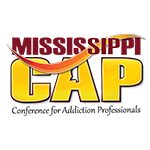
TUESDAY, APRIL 25TH
WORKSHOP DESCRIPTIONS
OPENING PLENARY
Overcoming the Struggle: Addiction, Mental Health & This Pandemic

Dr. Earl Suttle, Chairman & CEO
Leadership Success International, LLC
Everything worsens if you don’t manage your addiction recovery and mental health. In this highly interactive session, participants will learn strategies to overcome adversity personally and professionally. Participants will become more aware of how mindset, heart set, health set, and spiritual set can positively impact them as they seek to become their best version.
UPON COMPLETION OF THIS WORKSHOP, PARTICIPANTS WILL BE ABLE TO:
- LEARN 5 ways to reinvent themselves during post-pandemic times and 10 positive attitude traits for better personal growth
- LEARN how to create a personal growth plan in recovery, the 5 negative diseases that prevent personal and professional growth
- LEARN to understand the KISS model for self-improvement and 5 ways to go from average to outstanding, improving mental health
Cultural Connections with the Choctaw Nation

Toniya Lay, Director
Mississippi Band of Choctaw Indians - Choctaw Behavioral Health
This workshop will provide facts about Native American culture and treatment processes for Mississippi Choctaws. The focus will be on the importance of cultural competency, understanding diversity, and the importance of incorporating culture into treatment for recovery. Potential barriers to treatment will also be addressed, along with ways to navigate through barriers to improve treatment outcomes.
UPON COMPLETION OF THIS WORKSHOP, PARTICIPANTS WILL BE ABLE TO:
- DEFINE the meaning of individual and organizational cultural competency and discuss the importance of culturally competent mental health care services
- LIST and DISCUSS clinical and service delivery considerations
- DISCUSS the history of oppression leading to historical and intergenerational trauma among Native Americans and Mississippi Choctaw
Risk and Protective Factors Mold and Shape the Youth

Sitaniel Wimbley, Executive Director
National Alliance on Mental Illness (NAMI) - Mississippi
Through a journey of lived experience, the presentation will focus on risk factors and protective factors that can influence the lives of youth. Research has shown that risks and protective factors have necessary implications. The presentation will explore the definition and examples of risks and protective factors. The audience will gain awareness of how these affect individuals, families, and communities. The goal of the presentation is to allow individuals to learn how to become protective factors in a young adult’s life, which could ultimately positively improve the quality of life.
UPON COMPLETION OF THIS WORKSHOP, PARTICIPANTS WILL BE ABLE TO:
- IDENTIFY risk factors and protective factors that will assist with preventive interventions
- IDENTIFY how risk and protective factors are influential over time
- IDENTIFY types of interventions
Engaging the Faith-Based Community in Prevention

Tracy Johnson, Managing Partner S
TTJ Group LLC
This interactive workshop will provide participants with a broad overview of faith and spirituality as protective factors, outline the significant assets religious organizations possess, and describe how they can be mobilized to reduce substance abuse problems. Participants will learn some of the challenges of working with the faith community and hear how several coalitions have successfully partnered with congregations in their communities.
UPON COMPLETION OF THIS WORKSHOP, PARTICIPANTS WILL BE ABLE TO:
- DESCRIBE the relationship between race/ethnicity, substance misuse, and spirituality
- APPLY the information to connect with the faith community around prevention
- IMPLEMENT strategies to identify community resources to support a congregation.
Prevention Includes Everyone: The Disabling Impact of Addiction

Dwight Owens, Owner/Speaker/Consultant
Still Standing Consulting
Individuals with physical and intellectual disabilities are likelier to have a substance abuse disorder and less likely to get effective treatment than those without disabilities. Disability and addiction have a complex relationship, with both being a cause and effect of the other. Substance use and addiction can create a domino effect that touches multiple lives in unique ways. This presentation will address the immense risk of addiction in the disability population and its impact on an individual physically, emotionally, psychologically, and financially.
UPON COMPLETION OF THIS WORKSHOP, PARTICIPANTS WILL BE ABLE TO:
- DISCUSS dangers of addiction, helplessness, and hopelessness in various forms that impact the disability community
- DISCUSS ways addiction can be a cause of disability
- DISCUSS the impact of addiction on an individual and others in their support system and resources to utilize for help
A Hard Pill to Swallow: Adolescent Increased Recreational Use of Prescription Drugs

Dyelicia Vasquez, Project Director
Hinds Behavioral Health Services/Nfusion Metro SOC
Prescription drugs are in almost every home around the world. The misuse of prescription drugs is one of the most overlooked addictive behaviors when treating substance use disorders. Most parents and caregivers do not easily identify the abuse of prescription drugs in young adults. The goal of this presentation is to shine a light on the importance of being aware of what adolescents are taking and why. Also, to understand the consequences of misusing prescription drugs, it is essential to be informed on what adolescents are facing and how to help prevent the misuse of prescription drugs.
UPON COMPLETION OF THIS WORKSHOP, PARTICIPANTS WILL BE ABLE TO:
- DISCUSS the current trends and statistics of prescription drug use among adolescents
- DISCUSS the access points for obtaining prescription drugs and recognizing language used among adolescents
- EDUCATE on treatment options and resources available for treating youth using prescription drugs
Welcome to H411: Understanding STIs and HIV

Jason Chapman, Outreach Educator
AIDS Services Coalition
This presentation entails information on Sexually Transmitted Infections (STIs) and Human Immunodeficiency Viruses (HIV). The information includes current statistics in Mississippi, details about STIs mentioned, and available prevention methods and resources. The presentation will also include information about our organization and our services.
UPON COMPLETION OF THIS WORKSHOP, PARTICIPANTS WILL BE ABLE TO:
- DISCUSS the importance of STI and HIV prevention
- DEMONSTRATE how STI and HIV conversations can be fun, yet educational by using activities to engage audiences
- DEFINE HIV & STI stigma and ELABORATE on how common it is in today's society and how we can make a change
The 12-Step Philosophy and the AIP Model Working Together

Rodney Farrar, Executive Director
The Extra Mile
The Adaptive Information Processing Model gives us a better understanding of how memory is stored, triggered, and activates physiological responses. This model gives us insight into how the 12-Step Philosophy can be explained to work on a neuro-biological level.
UPON COMPLETION OF THIS WORKSHOP, PARTICIPANTS WILL BE ABLE TO:
- GAIN an awareness of the AIP Model
- GRASP an understanding of role of nervous system in human behavior and how learning influences neurobiology
- UNDERSTAND how the 12 Step Philosophy can recondition learning as well as change neurobiology through memory networks
WEDNESDAY, APRIL 26TH
WORKSHOP DESCRIPTIONS
LUNCHEON PLENARY
Five Key P’s of Organizations & Coalitions in Effective Substance Misuse Prevention

Tracy Johnson, Managing Partner S
TTJ Group LLC
This interactive session explores five key pillars that organizations and coalitions must incorporate into their day-to-day operations for meaningful engagement with their communities of focus. Understanding and incorporating these five key pillars; Passion, Prestige, Presence, People, and Process, into their professional development will give participants tools to assess their organization’s effectiveness and provide a roadmap for positive changes.
UPON COMPLETION OF THIS WORKSHOP, PARTICIPANTS WILL BE ABLE TO:
- DESCRIBE the five key strategies organizations and coalitions must use to be effective
- IDENTIFY the necessary adjustments organizations and coalitions must make to incorporate the five keys P’s to making a community impact
- IDENTIFY their personal and professional Passion, Prestige, Presence in the area of organization, and coalition influence
Substance Abuse & the Elderly: Sex, Drugs, & Temper Tantrums

Misty Fomby, Clinical Care Coordinator
Central Management
This workshop will focus on the unique patterns of behavior in the geriatric population with regard to the use of drugs, feelings of inadequacy related to issues of aging, hidden behavior in the aging population relative to drug use, and the associated shame for older adults. Participants will be able to define substance abuse, misuse and abuse of substances, and explain the role of self-medicating in older adults. Participants will also be able to explain the levels of desire, activity and intimacy in older adults, and demonstrate how many issues in the aging population lead to combative behaviors.
UPON COMPLETION OF THIS WORKSHOP, PARTICIPANTS WILL BE ABLE TO:
- DISCUSS substance abuse among older adults
- EXPLAIN the desire, activity, and intimacy in older adults and LIST examples of combativeness in older adults
- LEARN intervention strategies among older adults and be able to list ways to identify the source of risk-related behavior in older adults
Rethinking Stress & Mental Health (Creating a Wellness Plan)

Earl Suttle, Chairman & CEO
Leadership Success International, LLC
In this interactive dynamic seminar, participants will learn strategies to manage stressors before they manifest into toxic stress and negatively impact their mental health. Participants will learn how to increase productivity despite uncertain times coming out of the pandemic, how to increase their vitality at work and improve their emotional, physical and mental health, and how to create a Mental Health Wellness Plan for continued growth and stress reduction.
UPON COMPLETION OF THIS WORKSHOP, PARTICIPANTS WILL BE ABLE TO:
- LEARN how to identify the early warning signs of stress and how to increase their vitality at work and improve their emotional, physical and mental health
- LEARN how stress can benefit YOU to help manage your mental health
- LEARN what as leaders they can do to reduce and improve the mental health within their organizations
Suicide: It's a Permanent Solution to a Temporary Problem

Christian Ware, Senior Director of Solutions
Canopy Children's Solutions
This presentation will look at data trends and global hot spot areas. It will identify field trends that have taken place recently and ways to help identify and begin to assist those who are experiencing suicidal ideations. The presentation will also discuss innovations and evidence-based/best-practice care approaches and how to connect with these resources.
UPON COMPLETION OF THIS WORKSHOP, PARTICIPANTS WILL BE ABLE TO:
- DEMONSTRATE the current trends in the field to demonstrate the progression of suicide and suicidal ideations in America and in the state
- EXPLAIN and DISCUSS what to look for when assessing suicidal ideations, how to evaluate risk, and what next steps to take to prevent loss of life including an overview of evidence based and best practice approaches to assessment and prevention
- EXPLAIN to participants new and innovative treatment options for suicide that are available and how to access them
Enhancing the Clinical Experience through Experiential Activities

Dr. Jerri Gledhill, Owner
Burton Health Solutions, LLC
Experiential activities can be a valuable addition to behavioral health treatment services, helping patients to engage in their treatment, develop important skills, and build a stronger therapeutic relationship with their therapists. Participants will be introduced to at least five experiential activities that can be incorporated into clinical work. The session will explore how experiential activities can be used to increase client engagement, increase active participation, gain a deeper understanding of challenges, increase skills, and create more collaborative and supportive therapeutic relationships.
UPON COMPLETION OF THIS WORKSHOP, PARTICIPANTS WILL BE ABLE TO:
- DESCRIBE the value of utilizing experiential activities to promote engagement and motivation of individuals in the behavioral health learning process
- INCREASE clinical skills useful for clinicians to utilize team-building exercises that can help individuals develop communication and problem-solving activities for improved decision-making and critical thinking skills
- INCREASE understanding and use of skills for improved engagement and understanding among individuals engaged in treatment through the use of experiential activities
Prevention 101: What it is and What it's Not

Jordon Hillhouse, MSBHLN Manager
Mississippi Public Health Institute
Prevention 101 is a class that covers the history of prevention, key theories, practical techniques for implementation, and evaluation strategies. This introductory workshop is ideal for those in public health, social work, education, and related fields who want to learn about substance abuse prevention.
UPON COMPLETION OF THIS WORKSHOP, PARTICIPANTS WILL BE ABLE TO:
- EXPLAIN the history of substance abuse prevention, including key milestones and important figures in the field
- IDENTIFY the various theories related to substance abuse prevention, including individual, community, and cultural approaches
- DESCRIBE practical techniques for implementing substance abuse prevention programs and initiatives, and evaluate their effectiveness
NARCAN Training

Charlotte Bryant, Outreach Coordinator
Mississippi Department of Mental Health - Stand Up Mississippi
Do you know the signs and symptoms of an opioid overdose? How can you help reverse opioid overdoses? What are some ways to help inform your community about prescribed opioids and illicit drugs?
UPON COMPLETION OF THIS WORKSHOP, PARTICIPANTS WILL BE ABLE TO:
- RECOGNIZE the signs and symptoms of an opioid overdose
- Safely ADMINISTER NARCAN to a person experiencing an Opioid Overdose
- UNDERSTAND and DISCUSS the effects of substance use disorders in the workplace in occupations like construction, manufacturing, oil and gas refinery, hospitality and farming
Mental Health and Self Care Strategies for Adolescents

Shalonda Carlisle, Owner/Therapist
Carlisle Counseling & Consulting Services, LLC
This presentation will include strategies to assist adolescents with mental health challenges.
UPON COMPLETION OF THIS WORKSHOP, PARTICIPANTS WILL BE ABLE TO:
- IDENTIFY mental health issues and challenges
- REVIEW professional journal articles
- LEARN intervention and treatment modalities for mental health challenges
I Am More! Reducing Stigma for Those with Substance Use Disorder

Brenda Foster, Psychiatric RN/Behavioral Health Patient Navigator
Coastal Family Health Center
One of the many challenges in delivering appropriate care to nearly 20 million people in the United States with Substance Use Disorder and mental illness is the alarming amount of stigma these individuals encounter. Education is key in changing the atmosphere and stigma preventing many individuals from seeking treatment and help. Hear inspirational interviews of individuals who were able to overcome the negativity of stigma and are now using their experiences to make a difference in the lives of others.
"I alone can't change the world, but I can cast a stone across the waters to create many ripples." Mother Theresa
UPON COMPLETION OF THIS WORKSHOP, PARTICIPANTS WILL BE ABLE TO:
- DEFINE substance use disorder and mental health stigma
- DISCUSS the detrimental effects of substance use disorder stigma.
- DESCRIBE how the presentation will influence and affect future encounters with individuals who have substance use disorder and/or mental health illness.
Trauma and All the Drama it Brings! Substance Abuse, Mental Health, & So Much More

Fran Baker, Executive Director
BornFree of MS, Inc
Don't take your trauma home with you. Trauma affects everyone directly or indirectly. Trauma-informed care recognizes the presence of trauma and the role plays in the lives of clients, staff, and families of clients and staff. A trauma-informed agency promotes healing and supports clients and staff by recognizing the ongoing effects of trauma.
UPON COMPLETION OF THIS WORKSHOP, PARTICIPANTS WILL BE ABLE TO:
- DEFINE vicarious trauma and a new way of looking at the subject.
- DISCUSS the various symptoms and outcomes of vicarious trauma on mental, physical, emotional, and spiritual health of client and professional.
- LIST and EXPLAIN various methods of identifying and coping with vicarious trauma.
7 Steps to a Successful Prevention Program

Mack Pampley, Prevention Specialist
Mississippi Public Health Institute
There is a multitude of effective substance abuse prevention interventions that may have different areas of focus and can be implemented in a variety of settings. Interventions can involve the family, school, and community and may provide substance abuse prevention for an individual or a population of youth by focusing on environmental and community factors and policies, developmental factors, or skill development. This session will look at 7 steps for a successful prevention program based on risk and protective factors, the type of program, and the delivery of the program.
UPON COMPLETION OF THIS WORKSHOP, PARTICIPANTS WILL BE ABLE TO:
- IDENTIFY the steps of the Strategic Prevention Framework
- DISCUSS the elements of each step of a successful prevention program
- EXPLORE ways to implement this information into their current work
How to Use Social Media to Promote Prevention

Linda Vasquez, Executive Director
DREAM of Hattiesburg, Inc.
The term social media refers to a computer-based technology that facilitates the sharing of ideas, thoughts, and information through virtual networks and communities. Social media is internet-based and gives users quick electronic communication of content, such as personal information, documents, videos, and photos. Users engage with social media via a computer, tablet, or smartphone via web-based software or applications. This presentation will provide participants with an opportunity to explore and review the use of social media to promote prevention/educational messages.
UPON COMPLETION OF THIS WORKSHOP, PARTICIPANTS WILL BE ABLE TO:
- DISCUSS the importance of using social media in prevention education
- DISCUSS the ethical concerns involved with social media and the influences and impacts on culture
- REVIEW and DISCUSS the outcome of an alcohol prevention project using YouTube and TikTok
Understanding Opioids and Opioid Use Disorder (OUD) and How OUD is Different from Other Substance Use Disorders (SUDs)

Ed Johnson, Associate Director, Training and Technical Assistance
Southeast Addiction Technology Transfer Center (Southeast ATTC)
Over 107,000 individuals died in the U.S. of opioid related overdose in 2022 and the numbers continue to increase. The powerful opioid, Fentanyl, is finding its way into more and more substances of use. Most addiction professionals are not that familiar with OUD and still feel the only appropriate treatment is abstinence. This session will focus on why OUD is different from other SUD and what are the best ways to treat it.
UPON COMPLETION OF THIS WORKSHOP, PARTICIPANTS WILL BE ABLE TO:
- EXPLAIN the neurobiology of opioid use disorder (OUD)
- IDENTIFY two similarities and two difference between OUD and Type 2 Diabetes and how they are treated
- DESCRIBE how naloxone works and why it is important to increase it's availability
Opiate Addiction Treatment with EMDR

Rod Farrar, Executive/Clinical Director
Extra Mile Recovery
A person's suffering from an opiate use disorder does not have to be severe as in times past. Fear of withdrawal can be so strong, that it can mimic a physiological trauma response. The utilization of EMDR can reprocess memory networks of past withdrawal episodes that will lead to desensitization of physiological activation.
UPON COMPLETION OF THIS WORKSHOP, PARTICIPANTS WILL BE ABLE TO:
- LEARN the concept of EMDR and how it treats trauma responses
- UNDERSTAND the role of memory networks in addiction and trauma
- GAIN and UNDERSTAND how EMDR can desensitize trigger responses
THURSDAY, APRIL 27TH
WORKSHOP DESCRIPTIONS
LUNCHEON PLENARY
Using Humor (Cartoons) to Assist with Triggers and Urges in Addiction and PTSD

Rod Farrar, Executive/Clinical Director
Extra Mile Recovery
People seeking therapy/treatment want to address presenting problems and unpleasant aspects of their life. Strengthening positive memory networks allows the patient to feel prepared to address their trauma. Cartoons can be an excellent resource for strengthening a patient's internal strength.
UPON COMPLETION OF THIS WORKSHOP, PARTICIPANTS WILL BE ABLE TO:
- GAIN awareness of positive memory networks
- LEARN how to use Cartoons as a resource
Understanding Medication Assisted Treatment (MAT) for Opioid Use Disorder (OUD)

Ed Johnson, Associate Director, Training and Technical Assistance
Southeast Addiction Technology Transfer Center (Southeast ATTC)
Addiction and Opioid Use Disorder are “chronic medical conditions”. However, many behavioral health professionals feel the only appropriate treatment is abstinence. The increase in mortality due to the misuse of prescription medications and heroin has caused the field to re-examine the use of medication to treat Opioid Use Disorder. This session will discuss all the various medications currently available for treatment and why Medication Assisted Treatment (MAT) is the only evidence-based treatment for OUD.
UPON COMPLETION OF THIS WORKSHOP, PARTICIPANTS WILL BE ABLE TO:
- IDENTIFY 3 specific things that opioids do to the brain.
- IDENTIFY 2 things that differentiate Injectable Naltrexone from Buprenorphine and Methadone
- IDENTIFY 2 things that buprenorphine and methadone do in an individual’s brain that decrease the chances of .a fatal overdose.
Opioids and Other Drug Trends: Preventing Youth Substance Use, Misuse, and Abuse

Mack Pampley, Prevention Specialist
Mississippi Public Health Institute
Many young people have experienced increased stress from a myriad of societal pressures. These stressors and adolescents' physical and emotional development can increase substance use and abuse. Current research into the substance use of youth indicates while there is a decrease in certain substances among youth, there is an increase in other, more deadly drugs. Research shows a decline in the perception of risks from using different substances among young people. This session will look at elements of youth brain development and the relationship to addiction, as well as research and emerging drug trends among the youth.
UPON COMPLETION OF THIS WORKSHOP, PARTICIPANTS WILL BE ABLE TO:
- EXAMINE the recent data on drug trends among youth
- EXPLORE key elements of youth brain development and its relationship to addiction
- DEFINE three emerging drug trends among youth
Psychotherapy: Putting in the Work

Jonathan Winston, Psychotherapist/Owner
Connecting the Dots Therapy
Sir Francis Bacon suggests, "Knowledge is Power." The overall goal of this presentation is to educate practitioners on the effectiveness of Psychotherapy in treating addictive behaviors, to train practitioners on the step-by-step model of implementing Cognitive Behavioral Therapy as a treatment approach, and to empower practitioners on ways to ignite the professional influencer within and the significance of self-awareness as a practitioner in the individuals' process of change.
UPON COMPLETION OF THIS WORKSHOP, PARTICIPANTS WILL BE ABLE TO:
- LEARN the effectiveness of Psychotherapy in treating addictive behaviors
- LEARN the step-by-step model of implementing Cognitive Behavioral Therapy as a treatment approach
- RECOGNIZE importance of self-awareness and it's influence on the work done with clients
Cultural Sensitivity: Culture is Not Always Your Friend

Fran Baker, Executive Director
BornFree of MS, Inc
The world seems more divided and divisive than ever. We all need tools to help us navigate this world in which we live. Participants will see the world in the eyes of another or “walk in another person’s shoes,” reducing confusion and misunderstandings. The presenter will increase awareness of how we view our world and how we got to this place.
UPON COMPLETION OF THIS WORKSHOP, PARTICIPANTS WILL BE ABLE TO:
- DEFINE culture as it relates to individual, family, and community
- DEMONSTRATE the differences in culture within a closed community
- DISCUSS cultural identification activity regarding comfort level of interaction with slides
More Than Special Needs: Why Parents Need to Know the TX Plan

Marq Powell, CEO
Powell Enterprise Consultants
Medication is a tool to help the child become successful but cannot be relied on as a miracle cure. Doctors prescribe medication to children, and parents prescribe love and patience. But prescribing to special needs children requires a different perspective. The doctor is prescribing not only to the child but to the parent as well. The parent expects a clear understanding of the treatment and the prescription choice. This workshop will show how the balance of the parent's care and love can bring out the special in the child while the medication is used to help the needs of the child. You see, the child is not just of special needs but a special child.
UPON COMPLETION OF THIS WORKSHOP, PARTICIPANTS WILL BE ABLE TO:
- Will achieve clear understanding of treatment and the prescription choices.
- Will gain confidence in self abilities to approach this perspectives
- will learn how the balance of the parents care and love
The Importance of the Arts with Clients

Resa Frederick, Therapist
Extra Mile Recovery
This presentation includes the benefits of utilizing the arts in therapy and addiction treatment. Participants will also participate in experiential art therapy activities.
UPON COMPLETION OF THIS WORKSHOP, PARTICIPANTS WILL BE ABLE TO:
- DISCUSS the benefits of the arts and mental health
- UTILIZE creativity and personal strengths in the workplace
- EXPERIENCE activities that incorporate art therapy
Trauma and Adolescent Development: When You Wonder Why?

Dwayne Nelson, Juvenile Mental Health Coordinator
Department of Mental Health
The session is designed to increase the participant's knowledge and understanding of child Trauma, its prevalence among youth involved in the Juvenile Justice System, and how traumatic experiences can impact youth development, behavior, and ultimately delinquency.
UPON COMPLETION OF THIS WORKSHOP, PARTICIPANTS WILL BE ABLE TO:
- DEFINE trauma by being able to identify signs and symptoms of trauma
- IDENTIFY how trauma affects the brain
- KNOW the appropriate trauma responses
Creating Connections that Count: Trauma & Why Mental Health Matters

Val Carson, Social Work Consultant
Consulting Solutions Etc, LLC
How to assess trauma victims by identifying signs of post-trauma behaviors and how it impacts mental health in individuals and groups; how to connect victims with appropriate service to address the identified needs of victims.
UPON COMPLETION OF THIS WORKSHOP, PARTICIPANTS WILL BE ABLE TO:
- IMPROVE assessment of trauma victims with details of specific inquiries about the trauma experienced
- RECOGNIZE the types of events that can prove to be traumatic to individuals and various cultural groups based on demographics and other descriptors that are vital to intervention
- INCREASE their knowledge of the impact on mental health the common disorders that result in traumatic exposure
Treating Adolescents with co-Co-occurring Disorders

Dyelicia Vasquez, Project Director
Hinds Behavioral Health Services/Nfusion Metro SOC
Adolescents with Co-occurring Disorders are growing dramatically around the world. Most teens use illicit drugs to cope with mental health challenges.The scary part about this issue is that suicide attempts are the must prevalent among individuals who have a co-occurring disorder. Treating these individuals require an intensive level of care approach. Utilizing evidence based practices are very important, however it is also important to understand the population being served and barriers the population face. It is important to implement treatment activities relevant to their generation and to understand their language and behavior. The goal of this presentation is to highlight treatment recommendations for adolescents suffering from co-occurring disorders and to bring awareness to available resources during treatment.
UPON COMPLETION OF THIS WORKSHOP, PARTICIPANTS WILL BE ABLE TO:
- LEARN statistics of the current impacts substance use and mental health have with adolescents today
- DEFINE the risk factors adolescents with co-occurring disorders face
- DISCUSS treatment options available to adolescents with co-occurring disorders
Pregnant, Parenting Women & Substance Abuse

Brenda Foster, Psychiatric RN/Behavioral Health Patient Navigator
Coastal Family Health Center
Treatment and Recovery of pregnant and/or parenting women with substance use disorder can be challenging. Pregnancy involves two human lives at risk. Timely intervention is critical in the treatment of pregnant women to decrease the amount of the baby's exposure to illicit substances. This workshop provides educational information on the increasing tragedy of the opioid epidemic, the specific needs of pregnant and parenting women, key challenges and barriers, and strategies to give these women the best chance at a successful recovery from substance use disorder.
UPON COMPLETION OF THIS WORKSHOP, PARTICIPANTS WILL BE ABLE TO:
- DISCUSS the specific needs of pregnant and parenting women with Substance Use Disorder
- DEFINE Neonatal Abstinence Syndrome and discuss treatment modalities for NAS
- RECOGNIZE key challenges and barriers in the treatment of pregnant and parenting women with substance use disorder and EXPLAIN ways to become an advocate for improving access to treatment and positive experiences in treatment for pregnant and parenting women
Taking a Public Health Approach in Prevention with Local Policy Change

Kristin Kidd, Sr. Research Associate
Wake Forest University School of Medicine
In prevention, environmental strategies like policy implementation can be intimidating and are often under-utilized. This interactive workshop will discuss how policies, systems and environmental strategies expand the reach of prevention services to affect upstream, population-level change. Participants will learn about our guided 10-step policy framework. This session will encourage participants to think more broadly about the benefits of changing the social context and the opportunities that policy and system change can provide to impact alcohol, tobacco, and other drug (ATOD) issues at the community level.
UPON COMPLETION OF THIS WORKSHOP, PARTICIPANTS WILL BE ABLE TO:
- DESCRIBE the importance of the public health approach in prevention work
- EXPLAIN the steps involved in a 10-step proven framework for local policy change
- PRACTICE some of the early policy steps to build their confidence
Opioid Workplace Awareness Initiative (OWAI)

Charlotte Bryant, Outreach Coordinator
Mississippi Department of Mental Health - Stand Up Mississippi
Description Coming
UPON COMPLETION OF THIS WORKSHOP, PARTICIPANTS WILL BE ABLE TO:
- Coming
- Coming
- Coming
FRIDAY, APRIL 28TH
WORKSHOP DESCRIPTIONS
BREAKFAST PLENARY
The Fierce Urgencies of Now! Changing the Conversation about The Role of Prevention, Commercialization and Inequity in a Time of National Crisis

Carlton Hall, Founder/CEO
Carlton Hall Consulting LLC
The role of prevention is critical in addressing addiction, which is directly and indirectly, impacting all Americans from coast to coast. The cost of Marijuana use is high. But it’s not that simple. Communities are still in the midst of an opioid epidemic, while addressing emerging challenges like rising vaping injuries and a meth resurgence, during a global pandemic.
This workshop will discuss poly-drug misuse, racial disparities, and other social factors. The implications of creating an inequity among those who misuse, seek recovery and are exposed to the emerging commercialism
The presenter will reframe perceived “gaps in the national conversation” as opportunities to change the conversation and offer “strategies” as critical skills required to specifically impact population-level reductions in polysubstance misuse and abuse with scale and scope in diverse communities.
UPON COMPLETION OF THIS WORKSHOP, PARTICIPANTS WILL BE ABLE TO:
- UNDERSTAND the importance of addressing vulnerable populations
- DEFINE behavioral health disparities
- UNDERSTAND the relationship between commercialization and marijuana myths/dangers
CLOSING PLENARY
Meet Me in Hard-to-Love Places: Using One's Past to Support a Future

Stina Jacobs, Clinical Therapist
Mississippi Drug and Alcohol Treatment Center
The closing plenary address chronicles the experiences of Ms. Stina Jacobs, who is a product of the juvenile justice/mental health system. Through persistence and support, she has emerged as a young professional mental health provider currently pursuing her doctorate in the Social Work. As a “product” of the system, she has the unique perspective or “street credibility” to offer unique insight into the best way to serve children and adolescents. Her address will speak to the strengths and needs of the system and of those who are served by the system. She will offer insight born out of her experiences and training as a licensed therapist to the audience in a manner marked by truth and a bit of humor.
UPON COMPLETION OF THIS WORKSHOP, PARTICIPANTS WILL BE ABLE TO:
- DEMONSTRATE an awareness to sensitivities when working with vulnerable clients experiencing substance use and co-occurring disorders
- INCREASE awareness and knowledge of how systems such as foster care, detention centers, and other institutions can contribute to trauma and increased substance use
- IDENTIFY and list "go-to" interventions for service such as emotion regulation, skill building, and distress tolerance
